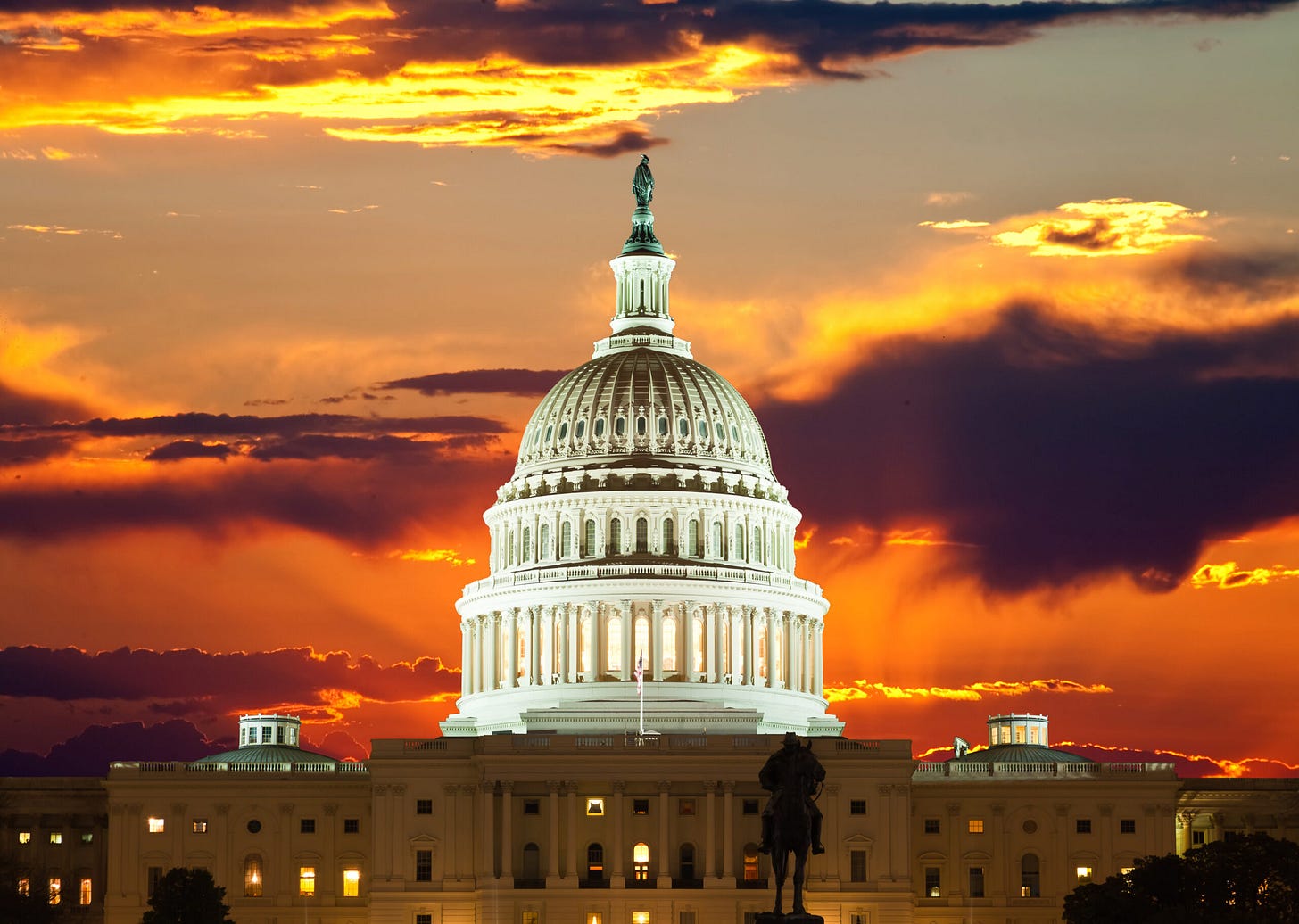No Labels ‘Would Serve as a Spoiler Benefiting the Republican Ticket’
The group is trying to get a third-party candidate on the ballot across the country.
[The organization No Labels is leading an effort to put a third-party presidential candidate on the ballot in every state in 2024, and Democrats are concerned that such a candidate could act as a spoiler. On the April 14, 2023 episode of the Bulwark’s “Beg to Differ” podcast, Third Way cofounder Matt Bennett discussed the issue with host Mona Charen and our panelists—including William Galston, who was a cofounder of No Labels back in 2010 but has now broken with the group.]
Mona Charen: There is an effort by a group calling itself No Labels that is attempting to grease the skids for a third-party candidate. They have a $70 million war chest. They’ve already achieved ballot access in a number of states—Arizona, Colorado, Alaska, and Oregon. It has signature-gathering efforts underway in other states, and the idea is to present a third option beyond Democrat and Republican—a moderate political choice for those who dislike both Trump and Biden. So, Matt, fill us in on this: Who’s behind it and why are you so exercised about it?
Matt Bennett: . . . No Labels started and has done quite a bit of good work in the center trying to bring Republicans and Democrats together, especially in Congress. However, in the last year or so, they have been aggressively fundraising and then doing work on the ground, as you’ve noted, to gain ballot access to run candidates for president and vice president in 2024. In fact, exactly a year from now, they’re planning a convention in Dallas to nominate their ticket to run as third-party candidates.
And the reason that we’re so worried about this is not because we think that their ticket, no matter who’s on it, could actually win the election—they absolutely, positively cannot win the election. No third-party candidate has won a single electoral vote in fifty years, and no third-party candidate, including one who is chiseled into Mount Rushmore, has ever come close to winning an election.
Charen: You’re referring to Teddy Roosevelt?
Bennett: Exactly. So, our concern is not that they will win. Our concern is that they will serve as a spoiler. And what has us most concerned is that there’s all kinds of evidence that they would serve as a spoiler benefiting the Republican ticket, which at the moment looks like it’s going to be Trump, and hurt the Democratic ticket, which is almost certain to be Biden and Harris. So that’s why we’re so worried about this. . . .
William A. Galston: I agree with the fundamental analysis suggesting that an independent bipartisan candidacy would hurt the Democratic nominee more than the Republican nominee. It is because of that that I protested against the decision to proceed down this road internally—until it became clear to me that my internal advocacy would not succeed, at which point I thought that I had no choice but to publicly distance myself from the organization.
The No Labels effort, I think, responds to a genuine problem. That is that the polarization of the two political parties that has occurred over the past two generations has left a lot of people in the middle of feeling quite dissatisfied—but, as Matt points out, not symmetrically dissatisfied. And there’s a very simple reason for that: If you look at standard analyses of the ideological composition of the two political parties, 75 percent of Republicans call themselves either conservative or very conservative, but only 50 percent of Democrats call themselves liberal or very liberal. The space for moderates is substantially greater inside the Democratic party than it is inside the Republican party. . . .
A lot of Americans aren’t thrilled with the two political parties for reasons that I can not only understand, but assent to. But in my judgment, there is a profound asymmetry between the two political parties. You can disagree with a lot of Democratic policies, but I think it’s pretty clear that they don’t represent the same sort of threat to constitutional institutions that the Republican party in thrall to Donald Trump does, and so it is difficult for me or anyone like me to be neutral.


